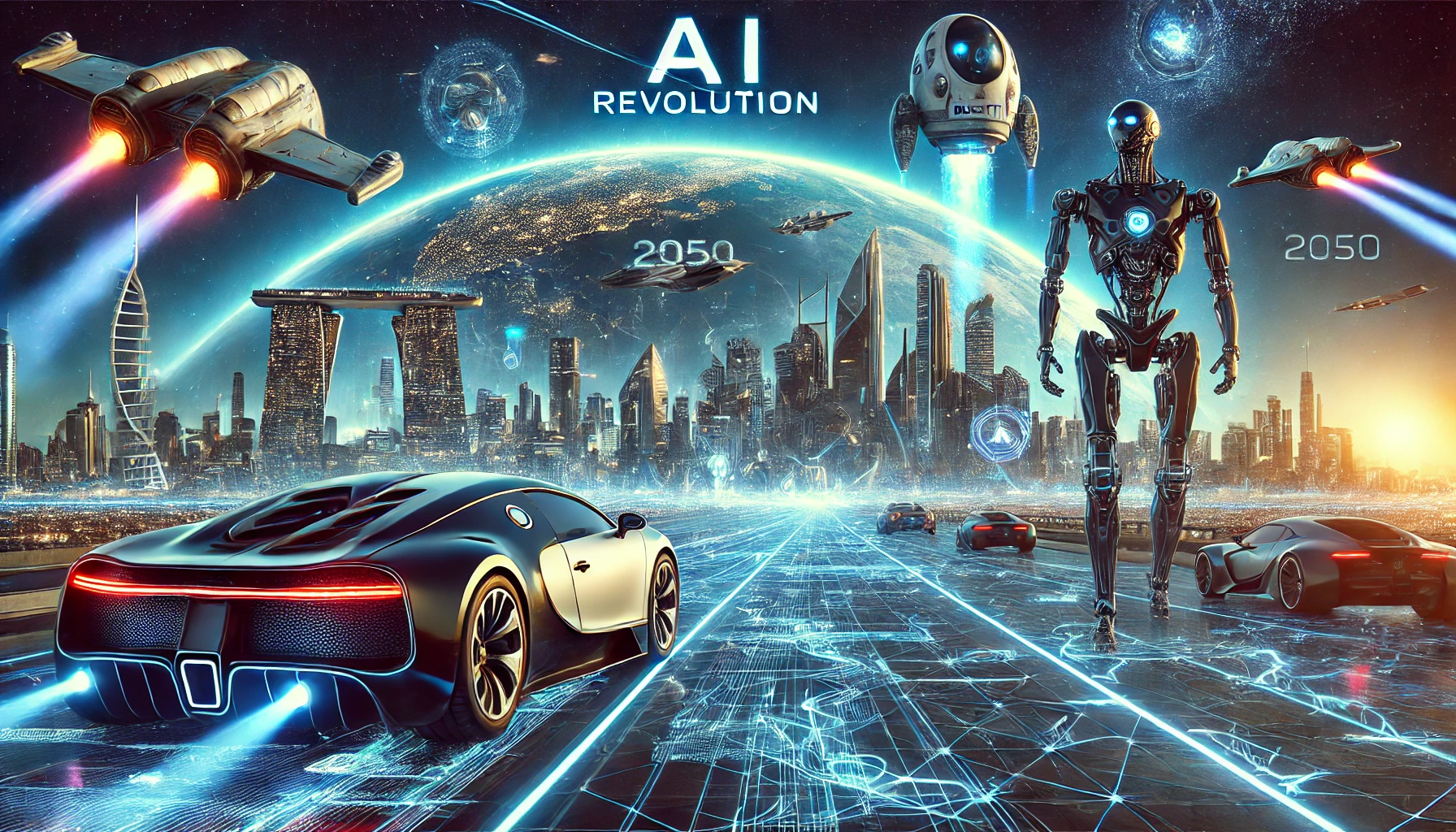AI Revolution 2025
 LOKESH WAGH
LOKESH WAGH
Here’s a detailed blog covering each of these questions on AI.
What is AI?
Artificial Intelligence (AI) is a field of computer science focused on creating machines capable of performing tasks that typically require human intelligence. AI systems process vast amounts of data, identify patterns, and make decisions or predictions based on this information. AI can be divided into two main types: narrow AI, which is specialized in a single task (like a recommendation engine), and general AI, which would theoretically be able to perform any intellectual task a human can. The recent advances in machine learning, natural language processing, and robotics have expanded AI’s potential in fields like healthcare, finance, and transportation. AI learns and improves over time, which makes it distinct from traditional programming. With the ability to automate processes and solve complex problems, AI is changing the way we live and work.
Importance of AI
AI is essential for driving innovation and efficiency across various sectors. In healthcare, AI enables early diagnosis through pattern recognition, aiding doctors in detecting diseases sooner and more accurately. In finance, it helps identify fraudulent activities by analyzing vast datasets quickly. For businesses, AI-driven automation can reduce repetitive tasks, increasing productivity and reducing errors. In manufacturing, robots powered by AI streamline production, improving output quality and speed. Governments also leverage AI for data-driven decision-making and infrastructure management. By analyzing large datasets, AI also drives personalized experiences, from targeted marketing to individualized education. AI’s ability to predict outcomes and optimize resources leads to more informed decisions and, ultimately, greater advancement across society.
Causes of AI Development
The development of AI is driven by the need for increased efficiency, the desire to process data at greater speeds, and the demand for solutions to complex problems. Advances in computational power, such as powerful processors and large-scale data storage, have made it possible for AI algorithms to handle massive datasets. The availability of big data—information collected from online behavior, IoT devices, and social media—fuels AI development, as these systems require substantial data to learn. Additionally, advancements in deep learning and neural networks have enabled AI to solve previously unsolvable problems. Industries also drive AI development by investing heavily in research to stay competitive. As AI technology becomes more refined, businesses, governments, and individuals increasingly look to AI as a way to automate processes, optimize operations, and enhance decision-making.
Disadvantages of AI
Despite its benefits, AI comes with several disadvantages. One significant issue is job displacement; as AI systems take over routine tasks, many jobs may become redundant, especially in sectors like manufacturing, logistics, and customer service. Another concern is the lack of transparency in AI decision-making, which can make it difficult to identify biases and errors in algorithms. Additionally, the reliance on AI systems can lead to a loss of human skills and critical thinking. Security risks are also prominent, as AI technologies are susceptible to hacking and misuse, particularly in areas like facial recognition and cybersecurity. Moreover, the energy demands for training and running AI models are substantial, contributing to environmental concerns. These drawbacks highlight the need for ethical and regulatory frameworks to manage AI’s impact responsibly.
Is AI Dangerous in the Future?
AI has the potential to be dangerous if not managed properly. One primary risk is the development of autonomous weapons that could make lethal decisions without human oversight. Additionally, AI systems could be used maliciously for mass surveillance, threatening personal privacy and human rights. Another significant danger is that as AI systems grow more powerful, they might act in unpredictable ways, particularly if they are given tasks where unintended consequences arise. There is also the potential for AI to create vast social inequality, as companies with access to advanced AI could dominate economically. Without proper regulation and ethical considerations, AI could exacerbate global issues. Experts call for responsible development and regulatory measures to prevent AI from causing harm in the future.
How AI Could Help in the Future (up to 2050)
By 2050, AI has the potential to transform industries and society. In healthcare, AI could enable precision medicine, where treatments are tailored to individuals based on genetic and lifestyle data. It could also help manage public health by predicting and preventing disease outbreaks. In climate science, AI models could optimize energy usage, leading to sustainable practices and reducing carbon footprints. AI might revolutionize education by creating personalized learning paths, making education more accessible and effective. In transportation, autonomous vehicles could reduce traffic accidents and congestion, making travel safer and more efficient. AI could even enhance creativity by assisting in art, design, and innovation. Although there are challenges, AI’s integration into daily life can create a more advanced, sustainable, and equitable future if managed responsibly.
Subscribe to my newsletter
Read articles from LOKESH WAGH directly inside your inbox. Subscribe to the newsletter, and don't miss out.
Written by
